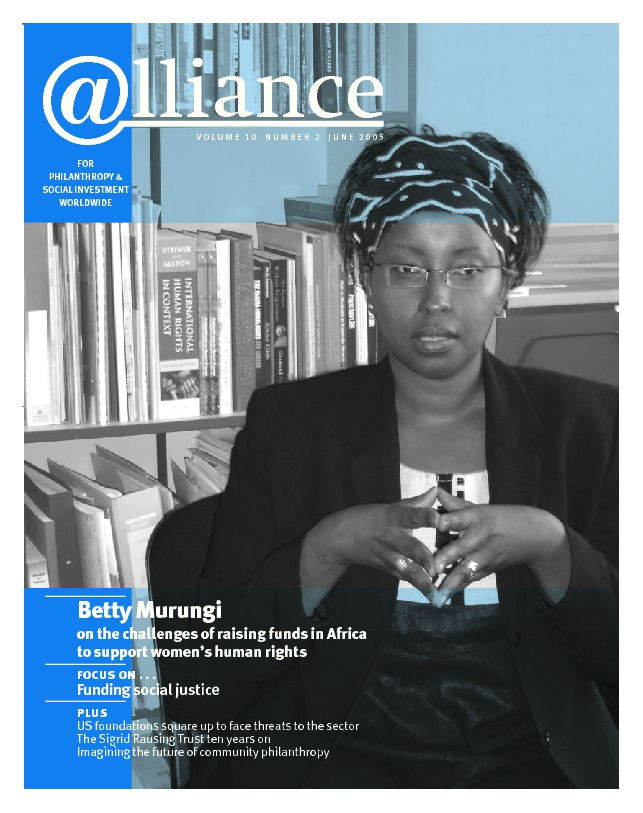While corporate concern over social issues is long-standing in Indonesia, and has increased over the last few years since the term corporate social responsibility began to emerge, many Indonesian businesses still consider CSR simply as charitable activity. Only a small number of companies (usually multinationals) understand that it is a business strategy by which profit and growth should be achieved along with the welfare of the local community and environmental sustainability.
To increase awareness and encourage CSR, Indonesia Business Links (IBL), supported by the Ford Foundation, conducted a case study on CSR practices[1] in 2004. In parallel with the study, IBL tested a measurement tool[2] for CSR practices.
The study involved seven companies in Java, Sumatra and Kalimantan, representing mining, oil/gas, forestry, and pulp/paper industries. The companies’ motives for undertaking CSR vary from fears of community protest, conflict prevention, and external pressures to – more positively – gaining social acceptance and commercial profit (due to increased efficiency and image building).
Scope and challenges of CSR activities
The main areas for community development programmes are the environment, education, health, disaster relief, local economic development, human rights, labour and security, and, to some degree, corporate governance. Most companies are beginning to realize that CSR is not just community development and should embrace the way the company carries out its business (labour relations, environmental aspects, etc) as well as community development.
Problems included continuing vagueness about the definition of CSR and a lack of knowledge and skills to undertake CSR activities. Community scepticism is an obstacle and, once this has been overcome, another problem often arises: corporate contributions can create dependency rather than self-reliance among community beneficiaries. Conflict may also emerge when companies are seen as disrespectful of cultural norms/customs. Another problem in corporate-community relations is the illegal business practices happening in the vicinity of or inside the operational areas of the companies (eg in the mining and logging sectors), which often jeopardize the company’s reputation. The study also uncovered the fact that patchy and confusing regulations create an unfavourable climate for CSR. There is, for example, no regulatory framework on tax incentives for CSR activities in Indonesia.
Benefits
Companies believe CSR brings commercial, social and environmental benefits. Direct commercial benefits are higher productivity, reduced business risks and associated costs, improved share prices, and good brand image. Social benefits include an improved reputation, an improved relationship with stakeholders (government and NGOs), reduced social unrest and commercial disruption, as well as greater potential for sustainable socio-economic development. The companies also confirmed that environmental benefits resulting from CSR can be both particular to the company (eg operational efficiency) and more general (reduced emissions and resource conservation).
Measuring corporate citizenship
What has also been lacking is some means of practical measurement for CSR, so last year IBL entered into cooperation with the Philippine Business for Social Progress (PBSP) to adapt PBSP’s recently tested self-assessment tools to benchmark corporate citizenship for use in Indonesia. It has completed a pilot testing of the first of these tools (Tool No 1), Corporate Citizenship System and Process Assessment, which allows companies to self-assess five elements of CSR: leadership, policy, programme development, systems installation, and measurement and reporting. Each of these is graded on a five-point scale. Again, seven companies participated in this pilot testing, representing oil/gas, forestry, services (contractor, consultant, and hotel), and electronic manufacturing industries. The second tool, for Impact Assessment, will be tested in 2005.
Since the number of participants is limited, this pilot project cannot be said to provide a general picture of companies’ CSR performance in Indonesia, but the measurement tool has proved to be effective in helping management to define more appropriate CSR practices.
1 PPM Institute of Management carried out the qualitative study, with assistance from PricewaterhouseCoopers. ERM Indonesia and Daya Dimensi Indonesia helped test the measurement tool and Ernst &Young assisted with the report writing. The four companies’ inputs were on a pro bono basis, reflecting their own CSR practices.
2 The tool is called Corporate Citizenship Benchmarking Tool No 1, adapted with permission from Philippines Business for Social Progress (PBSP).
Yanti Koestoer is Executive Director of Indonesia Business Links, a not-for profit organization established in 1998 by business leaders in Indonesia to promote good corporate citizenship. She can be contacted at yanti.koestoer@ibl.or.id
For more information about IBL, visit http://www.ibl.or.id






Comments (0)